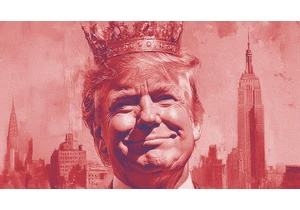Tobacco companies famously did it. Corporate giants still do it. Now, the Trump and Harris presidential campaigns have also been accused of astroturfing—not rolling out synthetic grass on sports fields, but faking grassroots support.
Astroturfing is the deceptive tactic of creating the illusion of widespread public backing for a person or policy when, in reality, that support is lacking. This tactic plays upon the human tendency to be influenced by the majority, often leading people to ignore evidence and even their own beliefs, instead jumping on the proverbial bandwagon.
“The difference between grassroots and AstroTurf”
The term was first coined in 1985 by Texas Senator Lloyd Bentsen and gets its name from the synthetic substitute designed to mimic grass. Discussing at the time the “mountain of cards and letters” he had received demanding his support for a bill favorable to the insurance industry, Bentsen famously said, “A fellow from Texas can tell the difference between grass roots and AstroTurf… this is generated mail”.
Astroturfing has since found fertile ground in the anonymity of the internet, where individuals or well-funded organizations—from political campaigns to activist groups—can operate undetected. In its modern form, astroturfing uses social media, forums, and comment sections to flood discussions with manufactured support or opposition, effectively drowning out the voices of real citizens.
Over the past 11 months thousands of fake, automated Twitter accounts have been discovered heaping praise on Donald Trump and ridiculing his critics, according to new research. As reported by the Guardian, sophisticated “persona management software” multiplies the efforts of each astroturfer, providing each with a name, email accounts, web pages and social media to make them indistinguishable from authentic profiles.
Astroturfing in the 2024 election
To make matters more complex, these campaigns don’t solely rely on automated “bots” or bot accounts. Often humans, rather than programmers or AI, are sat behind these screens, paid to wreak havoc all around the internet.
The New York Post recently reported that an OnlyFans creator was approached about by Palette MGMT, an influencer marketing company, on behalf of Future Forward—a Democratic Party-aligned super PAC. “Hi Michael, I hope you’re doing well! I’m reaching out on behalf of one of Palette’s partners with an exciting paid offer to create and post anti-Trump content on TikTok,” read the missive shared with the Post. Turns out the OnlyFans creator was a Trump supporter.
While there are laws in the United States against astroturfing in commercial advertising, political advertising remains a grey area. So, as with everything on the internet, take what you read with a hefty serving of salt.
Autentifică-te pentru a adăuga comentarii
Alte posturi din acest grup

As I write this, the most pleasing sound is washing over me—gentle waves ebbing and flowing onto the shore. Sadly, I’m not actually on some magnificent tropical beach. Instead, the sounds of the s

The relentless hype around AI makes it difficult to separate the signal from the

I don’t know about you, but I tend to think about my favorite tech tools as being split into two separate saucepans: the “classic” apps we’ve known and relied on for ages and then the newer “AI” a

The official White House social media account is under fire for posts that resemble something typically found on the internet forum 4chan.
A post shared on February 14, styled like a Val

The prospect of banning the sale of so-called


The day after the Super Bowl, ZapperBox quietly raised the price on Amazon of its over-the-air DVR.
ZapperBox offers one of the best means of recording local channels from an antenna, an
